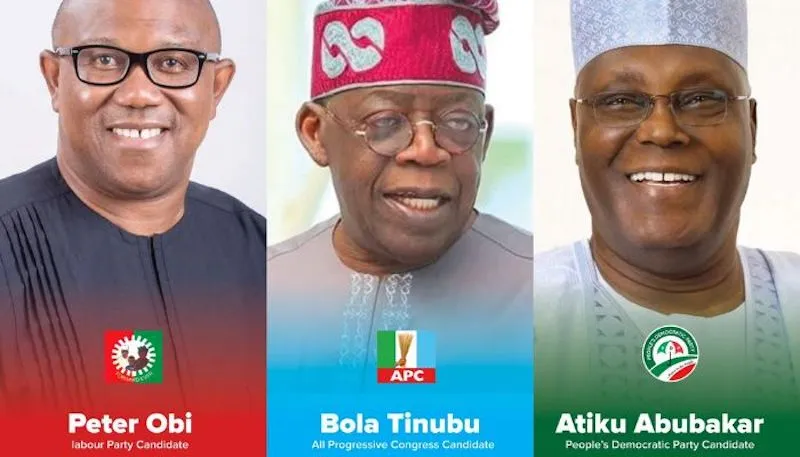After a four-year wait, D-day is here; Nigerians will troop out today to elect their leaders in a general election that promises so much. The highest office in the land, that of the President, is up for grabs after months of campaigns by 18 candidates of different political parties.
Africa Today News, New York reports that eighteen candidates have thrown their hats in the ring, but pundits believe that the contest is between the candidates of the ruling All Progressives Party, Asiwaju Bola Tinubu; the main opposition Peoples Democratic Party, Atiku Abubakar, who is a former vice-president; and Labour Party, Peter Obi, a former governor of Anambra State.
For Tinubu and Atiku, the election represents perhaps their last hurrah. Both men are advanced in age – the former vice-president is 76-year-old, while Tinubu, who is popularly known as the ‘City Boy’ is 70. By the time the next election circle comes, they will be 80 and 74, respectively.
In a country that is increasingly becoming conscious of the age and agility of its president, 2027 will come too late for the duo of Tinubu and Atiku. That throws up Obi, who at 61, carries the hope of the youth as someone they can easily relate to, and who has posed the greatest challenge to the status quo.
Read Also: 2023 Elections: We Are Ready – INEC Chairman
Though somehow overshadowed by the presidential contest, Saturday will also decide the fate of 1,101 candidates, who are vying for 109 senatorial seats, and 3,122 candidates for House of Representatives seats, making a total of 4,223 candidates contesting for 469 legislative positions.
‘In terms of gender distribution, 3,875 candidates are male, made up of 35 for presidential and vice-presidential; 1,008 for Senate and 2,832 for House of Representatives. Similarly, 381 females comprising one for presidential, 92 for Senate, and 288 for House of Representatives are contesting. There are also 11 persons with disability in the race,’ the Independent National Electoral Commission stated.
For Atiku, who served as former President Olusegun Obasanjo’s deputy between 1999 and 2007, this election makes it the sixth time that he will be aspiring for the top job. He lost in 1993, 2007, 2011, 2015, and 2019.
The 2023 presidential election is the first time that Tinubu will be gunning for the presidency. The former senator left office as a two-term governor of Lagos State in 2007 and is credited with leading the coalition that ousted the PDP from power in 2015 and has extended his influence beyond the South-West region in recent years.
Obi, on the other hand, served as governor of Anambra from March to November 2006, February to May 2007, and June 2007 to March 2014. In 2019, he became the PDP vice-presidential nominee running alongside Atiku. In 2022, Obi ran as a running mate under the PDP, but left for the LP in May 2022 to emerge as its presidential candidate.
Other presidential candidates are Dumebi Kachikwu of the African Democratic Congress; Rabiu Kwankwaso, New Nigeria People’s Party; Kola Abiola, People’s Redemption Party; Omoyele Sowore, Africa Action Congress; Adewole Adebayo, Social Democratic Party; Malik Ado-Ibrahim, Young Progressive Party; Prof Christopher Imumulen, Accord Party; Prof Peter Umeadi, All Progressives Grand Alliance; and Yusuf Mamman Dan Talle, Allied Peoples Movement.
The list also includes Hamza Al-Mustapha, Action Alliance; Sani Yusuf, Action Democratic Party; Nnnadi Osita, Action Peoples Party; Oluwafemi Adenuga, Boot Party; Osakwe Felix Johnson, National Rescue Movement; and Nwanyanwu Daniel Daberechukwu, Zenith Labour Party.

